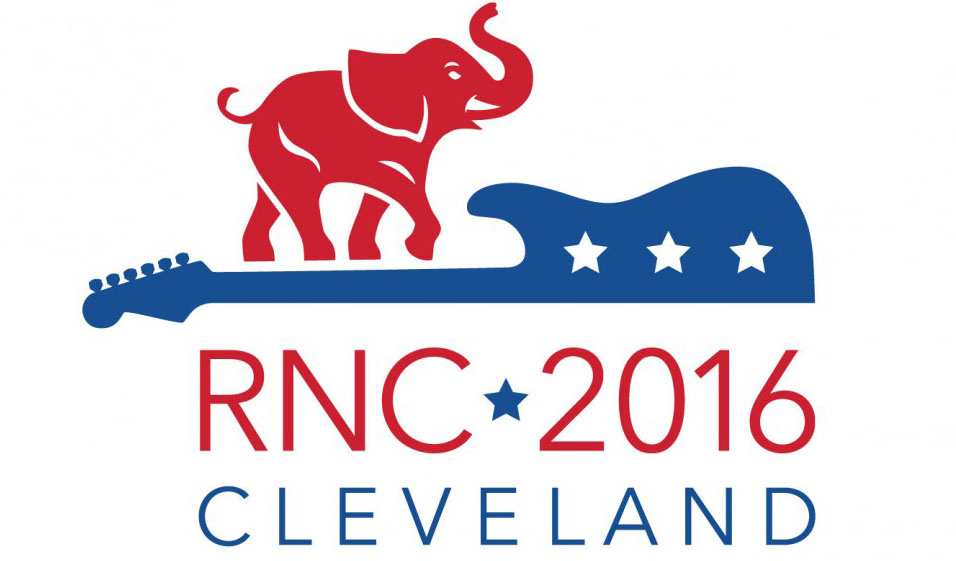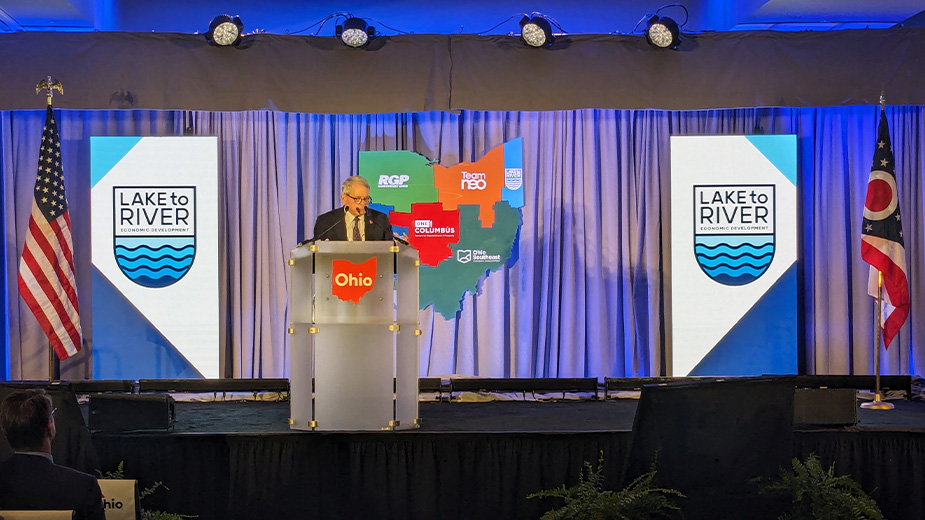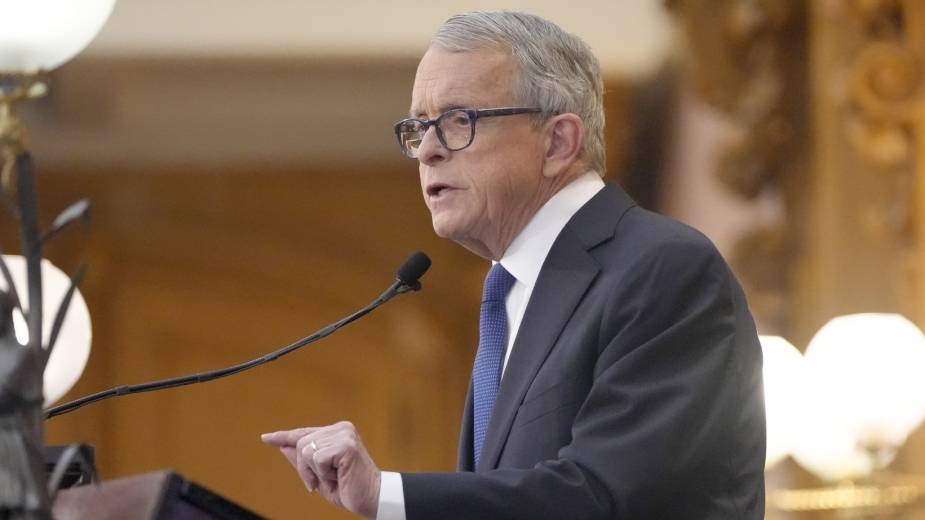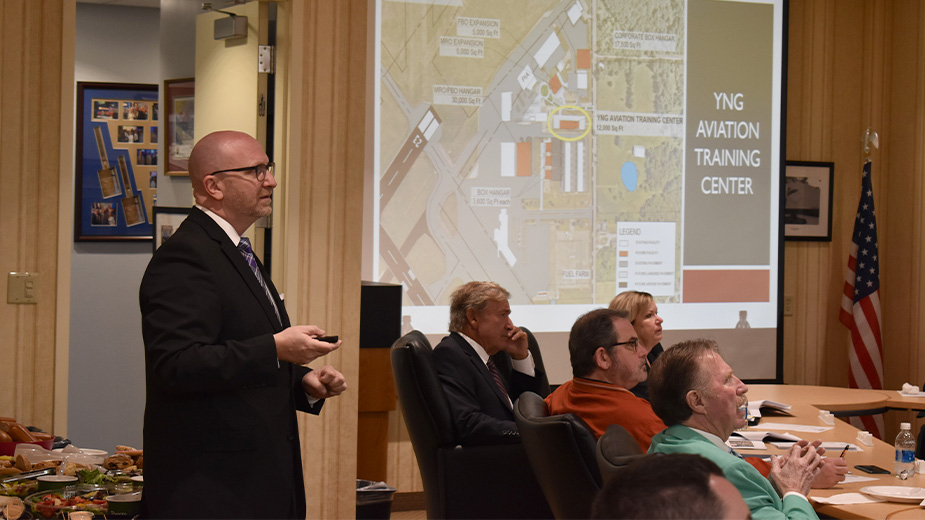Chamber Uses RNC to Showcase Region’s Assets
CLEVELAND – The Republican National Convention here is providing a unique opportunity for the Mahoning Valley to showcase land available for development and other assets before more than a dozen professionals who scout locations for companies.
Since Monday, the Youngstown Warren Regional Chamber has played host to 13 site selectors from around the country, the major component of its “Victory for the Valley” initiative to capitalize on the RNC’s presence in the region.
“We’ve got some folks from Atlanta, Chicago, California, Texas, Phoenix,” said Sarah Boyarko, the chamber’s senior vice president for economic development. The professionals represent clients including big-box retail, warehouse/distribution and manufacturing “that are looking for assistance in locating the ideal site, finding the appropriate workforce, in addition to us helping them to coordinate any assistance that might be available to attract them to the Mahoning Valley,” she added
Added Tom Humphries, chamber president and CEO, “There are some folks we have worked with on a regular basis and there’s others we have not worked with before.” The objectives are to establish “a long-term relationship, to get our name out there, for them to experience the Valley, the leadership and walk away with a good feeling.”
The site selectors arrived in the Mahoning Valley Monday, where they attended a reception hosted by the Cafaro Co. in Niles. The chamber also presented a “virtual tour” via drone of property the company has acquired adjacent to Eastwood Field at its Eastwood Mall Complex.
Yesterday the chamber brought the site selectors and business leaders to Cleveland for activities associated with the RNC, including a midday reception and an event at the Rock and Roll Hall of Fame and Museum to honor Gov. John Kasich.
Among the site selectors participating in the events is James Blair, managing director of Navigator Consulting. Based in Atlanta, Navigator is “a boutique site selection company” that works with international companies looking to establish manufacturing locations, he said.
Blair said he rarely participates in such events because they take away from his firm’s core business but he wanted to get to know the area better. He became familiar with the greater Cleveland region through working on a project in Norwalk for a German supplier to General Motors, and wanted to learn more about Ohio and the Midwest in general and the Youngstown area in particular.
“The Midwest is changing a great deal. It’s becoming more competitive,” he said. “Ohio’s only been competitive for one of our projects out of probably 20 that we’ve worked but I have a feeling that it could be becoming more competitive.”
Among the reasons Ohio is becoming more competitive for projects are the workforce and logistics, he said. “Despite what you would hear from state authorities, what really drives the competitiveness is the local communities,” he continued.
“It’s very active local communities, for example, people very eager to bring investment into their communities. I saw that in the Norwalk area; I’ve seen it in the Toledo areas. I’ve seen it in Columbus and other small communities as well. … I would say in particular once you get out of the larger cities you see some very eager local authorities wanting to make a deal to bring investors into their communities” by offering such incentives as tax abatement and site preparation help, he said.
Even more beneficial is if the desired land is under public control rather than owned by a private owner that might charge more for the site, making it less competitive, he pointed out.
Alison Benton, president of Aliquantus Consulting in Fort Worth, Texas, represents clients from IBM and Mitsubishi to Cerner Corp. and Toys R Us. She’s been to Ohio for work involving Goodyear, but not to the Mahoning Valley. “We have to be very particular about which groups that we go and see,” she remarked. “Since there’s a lot going on in Ohio and this is a part of the state that I had not been to, I said, ‘This is something that I need to do.’ ”
Benton says she works with several companies that are interested in locating in the region due to the proximity to the Marcellus shale, as well as with “many different kinds of industries,” and workforce is a key factor in her considerations.
“Our practice is based in the workforce piece of it,” Benton said.
Regarding the Mahoning Valley, she observed, “All of the cylinders look like they’re pinging on the right things, where there’s partnerships with the chamber, with economic development, with workforce development, with education. That whole benefit to the businesses and cradle-to-grave kind of thing is something that’s not going on everywhere else in the country.”
Scott North, a partner in Porter Wright in Columbus who head’s the law firm’s government and regulatory affairs practice, says his firm is heavily involved with clients in manufacturing as well as oil and gas, and the Youngstown-Warren area would be “very conducive” for projects involving his clients. “It has workforce experience with manufacturing. It has a lot of sites that are near infrastructure so it makes an ideal place for manufacturing location expansion,” he said.
The site selectors are looking for properties that offer the least costs for their clients, Boyarko said. “They would like shovel-ready properties that don’t have any issues, that don’t have any wetland or brownfield challenges. They’ll also be looking for the appropriate workforce.”
Today’s activities for the site selectors include a round of golf and presentations by the Builders Association of Eastern Ohio and Western Pennsylvania and workforce experts, Boyarko said. Following lunch, the selectors will visit available properties including, the former Gerdau building in North Jackson and the former RG Steel property in Warren.
Although he has seen some sites online and during Monday’s presentation, Blair said he’s looking forward to seeing some of the available properties in person.
“I’m eager to see what kind of offers are there, what kind of costs are involved. What we are particularly interested in is knowing what kind of due diligence has been done,” he said. “Unless a community has done the due diligence, meaning has it done the geotechnical studies, the environmental studies, it’s just a piece of property and there’s lots of property in the United States.
“Many people don’t realize communities are organic, they have a life to themselves. You only need to look at a city like Detroit to understand what the organics of the community are,” he continued. “They can be very vibrant and then they can die down but they can come back again as well. It depends on what people do and how they treat their community.”
MORE:
Bobblehead Draws Smiles from Around the Globe
Copyright 2024 The Business Journal, Youngstown, Ohio.



